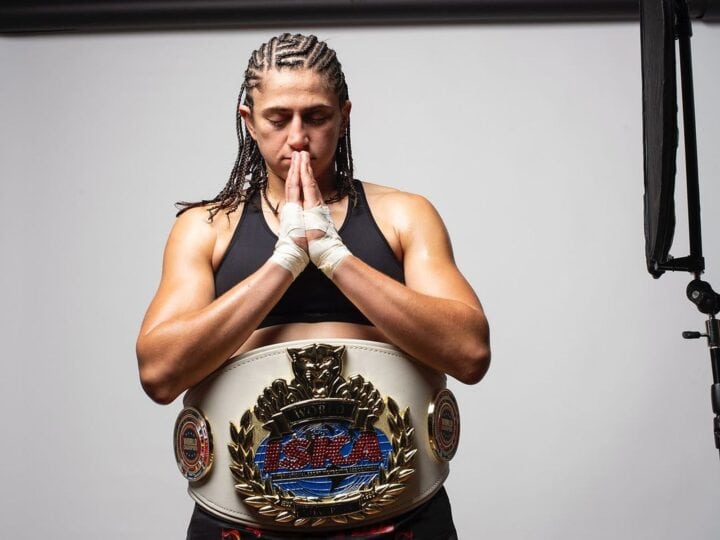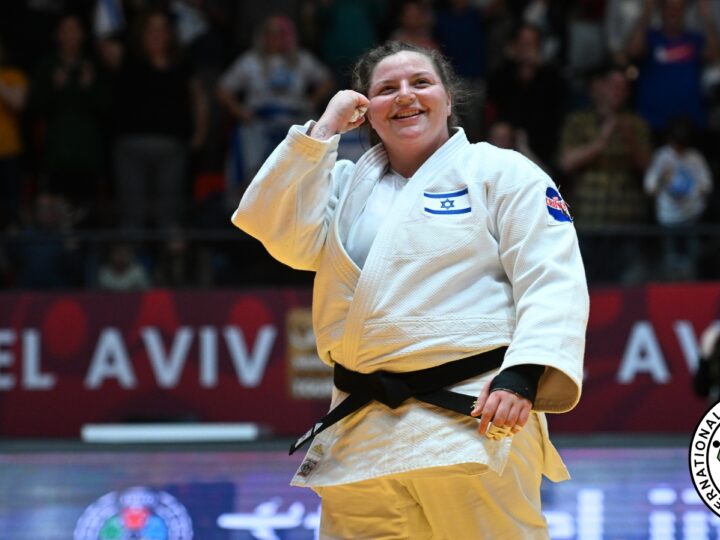“I used to be in a physically abusive relationship, and it took me many years to get to something that could make me feel safe and strong,” Kimberly Wach recalls.
“I tried all sorts of movements through therapy and occupational therapy until one day I was training in my regular gym and a personal trainer said to me said that we could do boxing for fitness. She put the gloves on and I can’t explain how empowered I was. I knew I wanted more and wanted to be professional.”
Fast forward a few years and Wach, now 34 and expecting her first child, is on hiatus from competing in Olympic boxing. She is also the owner of Kimberly’s, a martial arts gym for women in Tel Aviv.
“About two weeks after I put those gloves on me, I decided to go to a professional camp in Thailand,” she says. “When I got there, I trained there with professionals I see on TV now.”
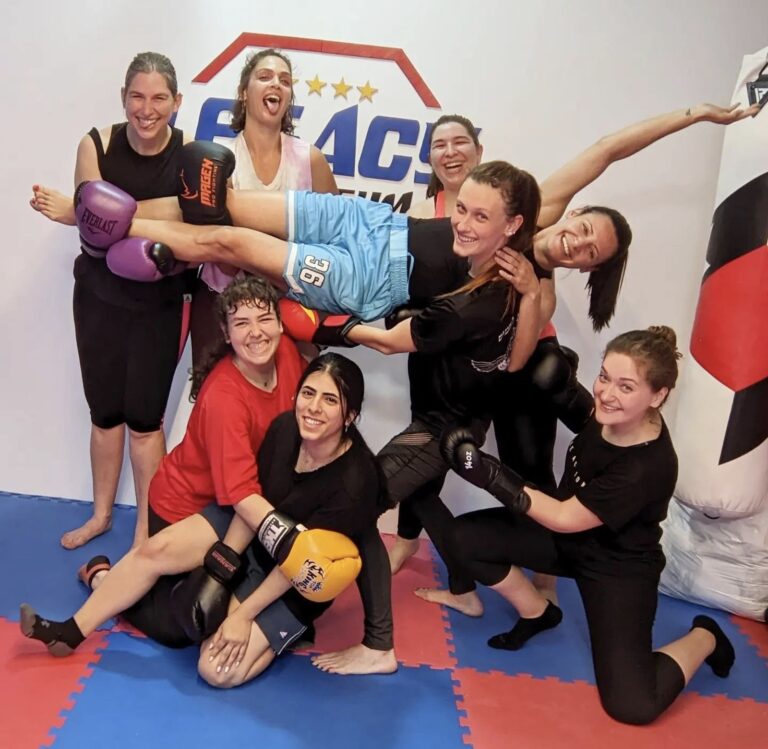
One day it clicked that she wanted to train people in boxing. “I fell in love with this world, and it made sense that this is what I’ll do every day,” she tells ISRAEL21c.
“I also went on to compete. I was pretty old compared to others. I started when I was 26, 27, and everyone else had started boxing when they were like 10. I had to compete against people who had eight or nine years more experience than me and were physically younger than me. But I didn’t care. It was the best experience.”
Underrepresented and misunderstood
Speaking to ISRAEL21c while eight months pregnant, Wach was still boxing, training and lifting weights – only in moderation. She’s the first pregnant woman her male coach ever trained, a fact that highlighted for her yet another area in which women are underrepresented and often misunderstood in boxing.
While full of praise for her personal coach, Wach points out the issues facing women boxers at all levels.
“As a beginner, when you walk into a boxing gym, men know how to handle men but not to handle women. They don’t understand what’s hard, what’s soft, what’s okay,” she says.
“There are also so few female fighters and this isn’t a problem just in Israel but the whole world. If you want to train for a fight, you’ll train against men all the time,” she adds. “And except for one or two in Israel, there are no real good women trainers, so if you want to go to one of the best trainers in Israel, most likely you’ll have to go to a man who won’t understand you’re having your period.”
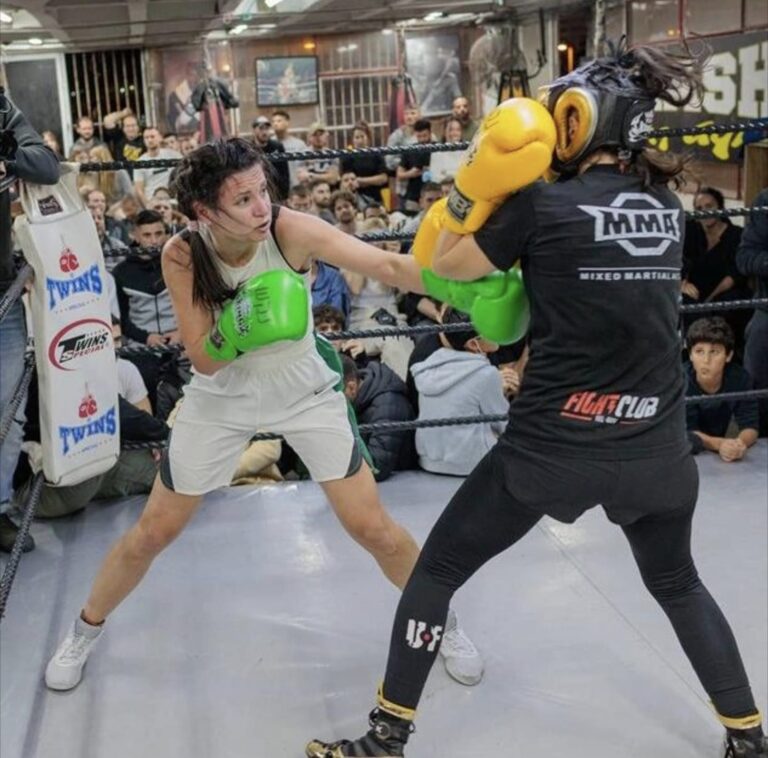
Wach tried training women in classes outdoors. But passers-by would often throw misogynistic comments at her students.
“I understood that I needed to build a home for women who wanted to try martial arts,” she says.
Her gym, Kimberly’s, welcomes women of all ages, backgrounds, religions and levels of experience, aiming to provide a safe and warm space to develop a sense of camaraderie as well as physical and emotional empowerment.
“It’s not about the physical strength, but the mental aspects that martial arts help women achieve,” she says. “For mental strength, you can go to a psychologist or coach and they give you tools, but if you don’t have a lab to try out these tools in a safe environment you don’t grow.”
Overcoming obstacles
“In martial arts, you have to overcome lots of obstacles: to understand limitations against yourself, good days, bad days, group dynamics… there are so many different aspects that it doesn’t just give you the mental toolkit, it lets you practice them in a safe place,” Wach says.
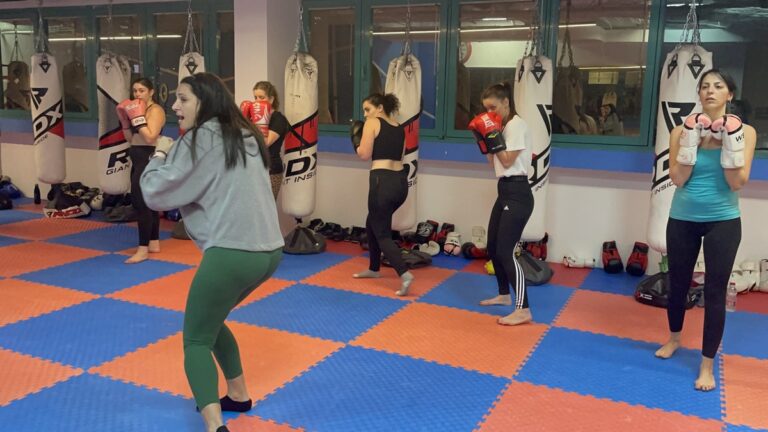
“The martial arts are a means to the end, but at the end of the day, I believe women need more places whew they can mentally grow and there aren’t a lot of platforms for that.”
The immediate challenge now facing Wach is the upcoming birth of her baby. As a survivor of domestic abuse, she has concerns about her daughter growing up in this world. However, she notes, her fiancé is a boxing gym owner too. And she has a good support system including her mother and women from the gym.
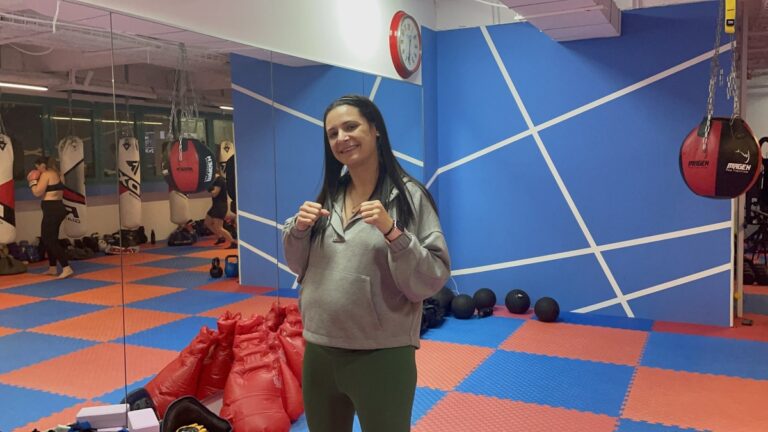
“It’s a very challenging time for women, because only now we’re starting to understand that boundaries need to be set and norms are changing,” she says.
For more information, click here.














